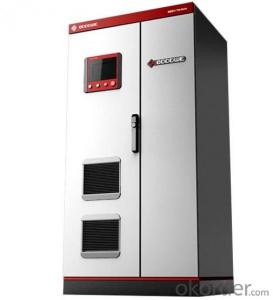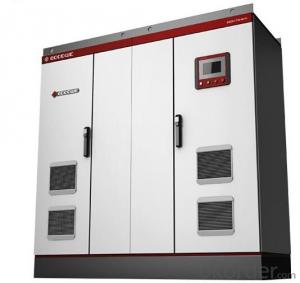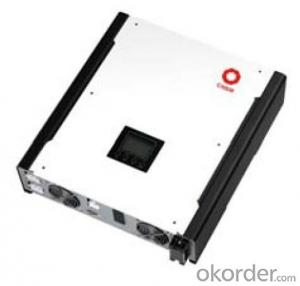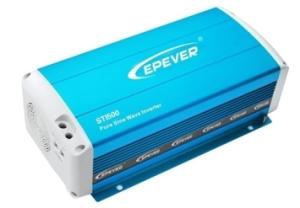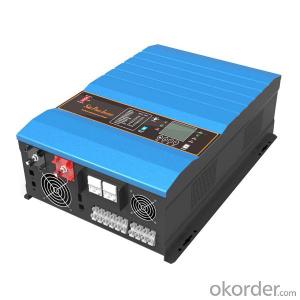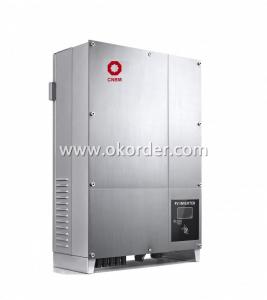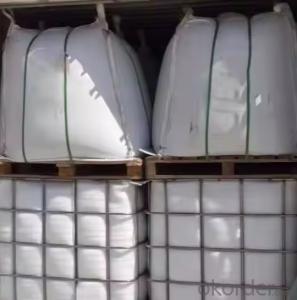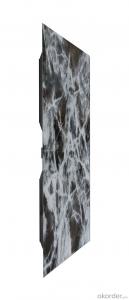On grid solar inverter GW500K-MTL
OKorder Service Pledge
OKorder Financial Service
You Might Also Like
Central solar inverter GW500K-MTL solar inverter is widely used in large-scale solar power plants. As core equipment in solar power station, its stability and reliability play an important role in long-term investment returns. GW500K-MTL solar inverter adopts industrial design philosophy as well as proven inverter control technology, which ensures its 25 years life time. In terms of solar plants grid integration, GoodWe solar inverter is also equipped with output power liner control, SVG reactive power compensation technology, LVRT capability and other advanced technologies which are apt to grid integration and management. In addition, its lower THDi output and higher conversion efficiency provide stronger support to green and efficient power plants operation.
Datasheet
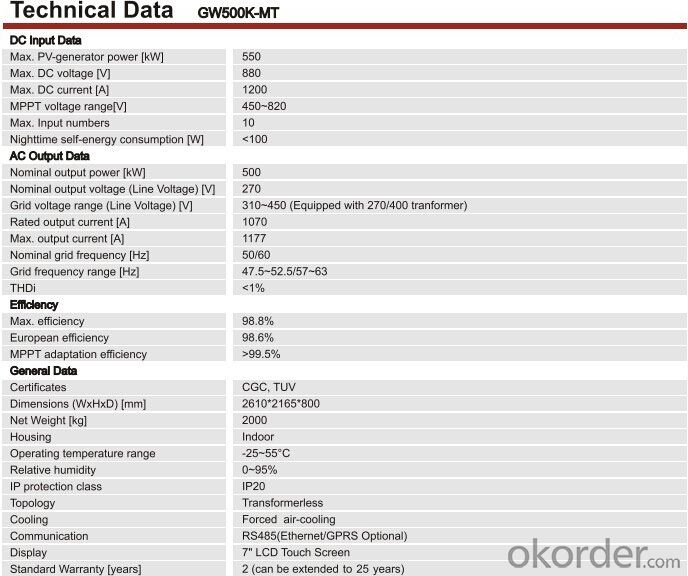
- Q:Can a solar inverter be used in systems with different module currents?
- Yes, a solar inverter can be used in systems with different module currents. Solar inverters are designed to convert the DC power generated by solar panels (modules) into AC power that can be used by electrical devices. They are typically equipped with Maximum Power Point Tracking (MPPT) technology, which allows them to optimize the power output from the solar panels regardless of their current ratings. This means that solar inverters can efficiently handle systems with different module currents and ensure the maximum power generation from the solar panels.
- Q:Are there any noise or sound considerations with a solar inverter?
- Yes, there are noise considerations with a solar inverter. While solar inverters generally produce low levels of noise, there can be some audible humming or buzzing sound generated during their operation. The noise level can vary depending on the type and model of the inverter. However, modern inverters are designed to minimize noise and are generally considered to be quiet during normal operation.
- Q:How does the input frequency range affect the performance of a solar inverter?
- The input frequency range directly affects the performance of a solar inverter. A wider input frequency range allows the inverter to efficiently convert a broader range of solar panel output frequencies into usable electricity. This flexibility ensures that the inverter can effectively handle varying solar panel output and maintain stable and reliable power conversion. Conversely, a limited input frequency range may result in poor performance, reduced efficiency, and potential instability or failure of the inverter under certain conditions.
- Q:How is a solar inverter different from a regular inverter?
- A solar inverter is specifically designed to convert the DC (direct current) electricity generated by solar panels into AC (alternating current) electricity that can be used to power household appliances and be fed back into the grid. On the other hand, a regular inverter is generally used to convert DC power from batteries or other sources into AC power. Therefore, the main difference lies in their purpose and the source of the DC electricity they handle.
- Q:What is the efficiency rating of a solar inverter?
- The efficiency rating of a solar inverter refers to the percentage of solar energy that is converted into usable electricity. It is a measure of how effectively the inverter can convert the direct current (DC) output from the solar panels into alternating current (AC) electricity that can be used to power household appliances or be fed back into the grid. The higher the efficiency rating, the more efficient the inverter is at converting solar energy into electricity.
- Q:What is the role of voltage regulation in a solar inverter?
- The role of voltage regulation in a solar inverter is to ensure that the output voltage of the inverter remains stable and within a certain range, regardless of fluctuations in the input voltage from the solar panels. This is important as it allows the inverter to effectively convert the DC power generated by the solar panels into AC power that can be used by household appliances or fed back into the grid. Voltage regulation helps protect the connected devices from voltage spikes or drops, optimizes the performance of the inverter, and ensures the safe and efficient operation of the entire solar power system.
- Q:How does a solar inverter handle islanding detection and prevention?
- A solar inverter handles islanding detection and prevention by constantly monitoring the grid and its own power output. If it detects a loss of grid connectivity, it initiates a process called anti-islanding, where it stops supplying power to the grid to prevent the formation of an island. The inverter accomplishes this by monitoring the frequency and voltage levels of the grid, and if it detects a deviation beyond a certain threshold, it disconnects from the grid within a specific timeframe. This ensures that the inverter does not continue to supply power to an isolated grid, which could pose safety risks to utility workers and damage electrical equipment.
- Q:Can a solar inverter be used for off-grid applications?
- Yes, a solar inverter can be used for off-grid applications. Off-grid systems typically rely on solar panels to generate power, and a solar inverter is used to convert the direct current (DC) produced by the panels into alternating current (AC) which can be used to power appliances and devices. The inverter also helps regulate the flow of electricity and ensure compatibility with off-grid power storage systems such as batteries.
- Q:Can a solar inverter be used in areas with high levels of electrical noise or interference?
- Yes, a solar inverter can be used in areas with high levels of electrical noise or interference. However, it is important to ensure that the inverter is designed to handle such conditions and has appropriate noise filtering mechanisms in place to minimize any potential disruptions or damage caused by the interference.
- Q:What is the efficiency of a solar inverter?
- The efficiency of a solar inverter refers to how effectively it converts the direct current (DC) power generated by solar panels into alternating current (AC) power that can be used to power household appliances or be fed back into the grid. It is typically measured as a percentage and represents the amount of DC power that is successfully converted into usable AC power. A higher efficiency indicates a more effective conversion process, resulting in less energy loss and maximizing the overall output of the solar system.
1. Manufacturer Overview |
|
|---|---|
| Location | |
| Year Established | |
| Annual Output Value | |
| Main Markets | |
| Company Certifications | |
2. Manufacturer Certificates |
|
|---|---|
| a) Certification Name | |
| Range | |
| Reference | |
| Validity Period | |
3. Manufacturer Capability |
|
|---|---|
| a)Trade Capacity | |
| Nearest Port | |
| Export Percentage | |
| No.of Employees in Trade Department | |
| Language Spoken: | |
| b)Factory Information | |
| Factory Size: | |
| No. of Production Lines | |
| Contract Manufacturing | |
| Product Price Range | |
Send your message to us
On grid solar inverter GW500K-MTL
OKorder Service Pledge
OKorder Financial Service
Similar products
New products
Hot products
Hot Searches
Related keywords
